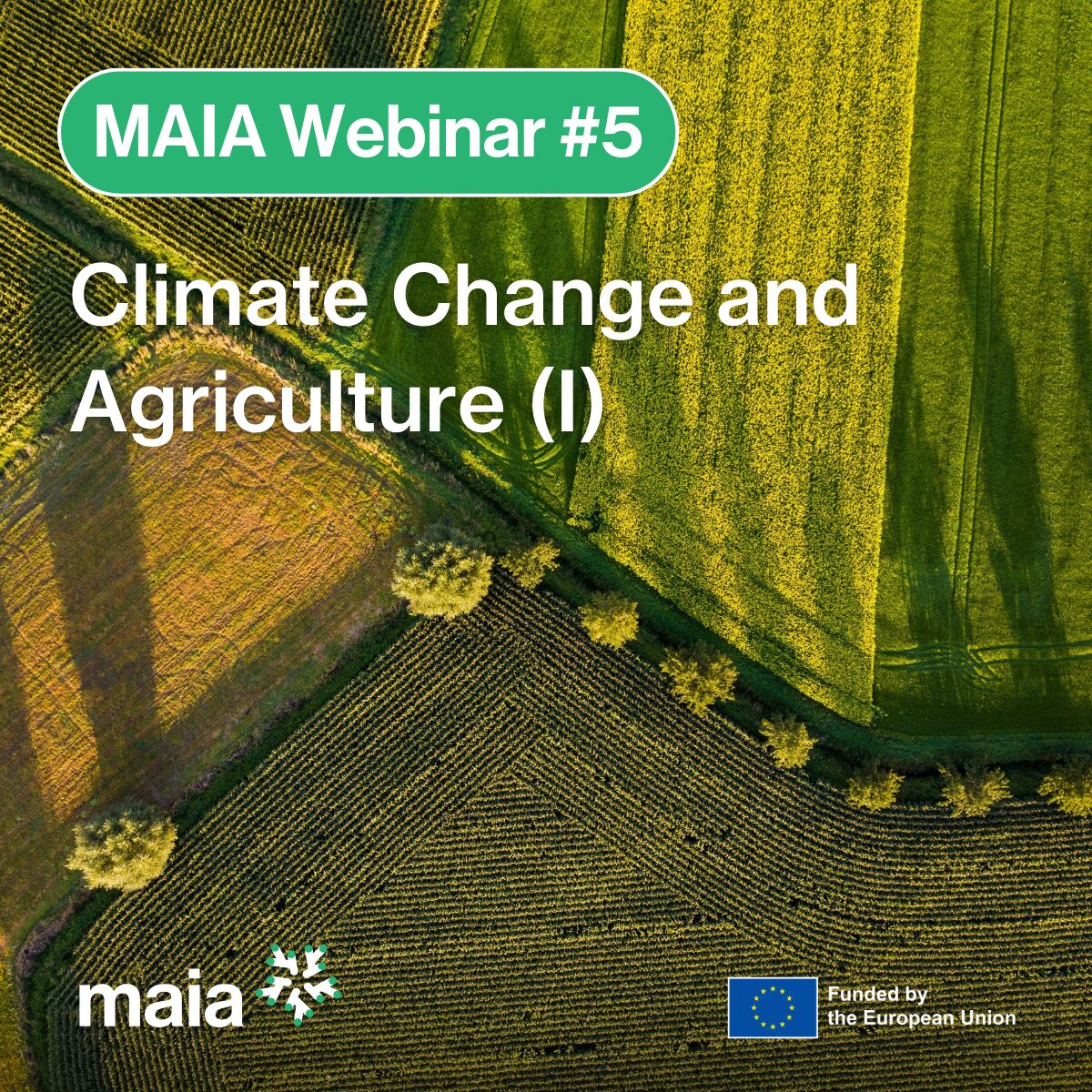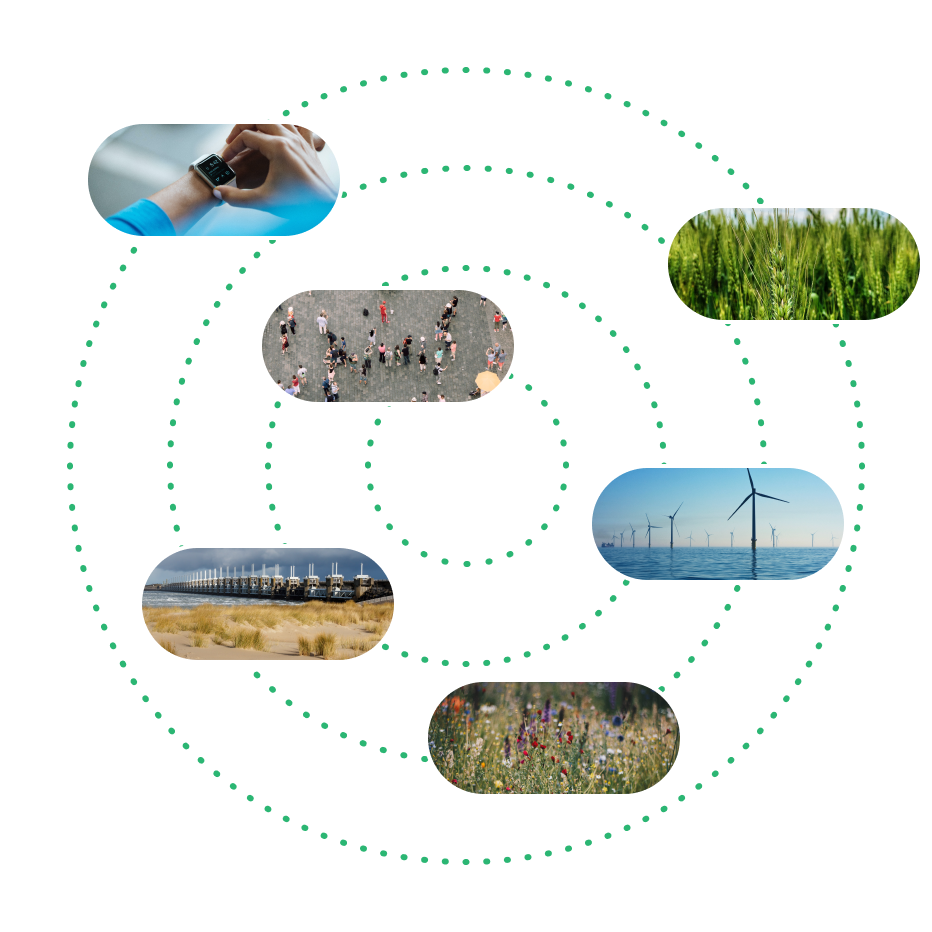Lessons learned from webinar “Climate Change and Agriculture (I)”

About the Webinar
On Friday 1st of September 11:00-11:45 CEST we had the pleasure to host a webinar with three EU projects involved in the area of agriculture and climate change: Path2dea, CRAS, and Climate Farm Demo. Read a summary and the lessons learned below!
The EU project Path2dea stands for Paving the Way towards Digitalization Enabling Agroecology for European Farming Systems and was presented by its project coordinator, Stefan Pfeiffer.

- Budget: € 1 999 980,00
- Funding call: Food, Bioeconomy Natural Resources, Agriculture and Environment
- Project duration: 1 January 2023- 31 December 2025
- Partners: 20
PATH2DEA is rooted in the principles of Agroecology, a multidisciplinary approach encompassing ecological, social, economic, and political elements. This initiative leverages digitalization to enhance agroecological practices, bridging the gap between EU initiatives in agroecology and digital technology. The project aims at harnessing the potential of digitalization to address pressing challenges in the environment, economy, health, and society. The project aligns farmers’ expertise and perspectives with existing digital solutions, tailoring them to specific needs and promoting widespread adoption of digital agroecological farming in the EU and associated countries.
Key aspects of PATH2DEA include six showcase farms located in diverse regions, serving as early adopters of digital agroecology. These farms offer hands-on experiences to validate project findings and foster consensus among stakeholders. The initiative also aims to create an Open Source Repository of digital agroecology tools and technologies with decision support features. Additionally, it will develop an R&I Roadmap to guide the transition toward digital agroecology. Doctor Pfeiffer illustrated several showcases of the project. One notable example involved smallholder olive farmers in Tuscany, Italy, who use digital decision support systems for irrigation, nutrition, and pest monitoring, fostering a holistic approach to farming.
Lea Nicita presented the EU project Climate change and Resilience of Agricultural System (CRAS), a research project aiming to better understand the contribution of agrobiodiversity to the resilience of agroecosystems and to the mitigation of the impacts of climate change on the agricultural sector.

- Budget: € 180 369,60
- Funding call: EXCELLENT SCIENCE – Marie Skłodowska-Curie Actions
- Project duration: 10 August 2019- 18 August 2022 (Completed)
- Partners: 2
In this completed project, the focus was on addressing the need for a more resilient agricultural system and the preservation of biodiversity. Researchers investigated how the diversity of crops in the landscape surrounding a farm impacted its value and overall agricultural production. Their extensive dataset covered farms in various Euro-Mediterranean countries, including Portugal, France, Spain, Italy, and Greece.
Using a general equilibrium model, the project assessed the effects of policies aimed at increasing landscape agrobiodiversity on the agricultural sector and the broader economy. While the primary beneficiaries were academia, the findings held significance for policymakers, farmers, and the general public.
The results revealed that increasing agrobiodiversity tended to boost farm revenues across most European regions studied. However, the impact varied by region and the specific biodiversity index considered. Regions like northern Spain, France, and Italy benefited from crop monoculture, while others benefited from greater crop diversity. This suggested that a one-size-fits-all biodiversity policy may not have been suitable for southern European regions.
Furthermore, the model’s application to the entire economy indicated a redistribution of resources towards regions that gained more from agrobiodiversity, resulting in an overall positive effect on the European economy.
Christine Berger presented the Climate Farm Demo Project, a very wide Europe network project based on Adapting agricultural production systems to climate change through adoption of Climate Smart Farming practices and solutions at Demo Events organised at Demo Farms across Europe.

- Budget: € 21 487 132,66
- Funding call: Food, Bioeconomy Natural Resources, Agriculture and Environment
- Project duration: 1 October 2022- 30 September 2029
- Partners: 74
The European project “Climate Farm Demo” is a collaborative effort involving 27 countries and real commercial farmers specializing in animal husbandry, horticulture crops, and arable crops. The primary objective is to create a significant positive impact, primarily benefiting farmers while also extending benefits to agribusinesses, consumers, and society as a whole. The project focuses on engaging 1,500 farmers in farm strategy adaptation and mitigation.
A key emphasis of this initiative is the integration of both adaptation and mitigation strategies to address climate challenges effectively. Climate Smart Farming (CSF) practices are at the forefront, with the goal of demonstrating their feasibility and significant reduction in greenhouse gas emissions, aligning with the EU’s climate target plan. The project comprises 12 thematic areas covering various aspects of adaptation and mitigation, with a strong emphasis on transitioning to climate-smart practices while keeping farmers at the center of this process. Farmers receive support from advisers to adopt, monitor, and demonstrate new CSF practices.
The project is organized around national networks that facilitate collaboration among actors that and are coordinated at the European level. The project seeks to create synergies with existing climate initiatives, sharing experiences and expertise. For members outside the network, the project offers valuable tools, training, capacity building, and shared experiences in carbon management, while also facilitating the development of common guidelines and promoting operational adaptation and mitigation measures for farmers and advisers. Additionally, the initiative promotes collaboration with other projects, flagship initiatives, and policymakers to organize events, share policy recommendations, and create a European knowledge exchange network of experts in CSF transition.
Lessons Learnt
- Lesson 1: We need to incentivize heterogeneous planting of crops at different levels
One of the key takeaways from the presentations is the urgent need to promote resilient agricultural systems and biodiversity preservation. Heterogeneous crop mosaics benefit ecosystems and crop production, aligning with EU climate targets. Lessons indicate that incentivizing such practices must occur across multiple levels and through different actors: academia, farms, producers’ organizations, and regional, national, and European policymakers. - Lesson 2: Overcoming Outreach Challenges for Effective Dissemination
All three projects brought up the challenge of outreach and networking. While academia engagement is relatively straightforward, reaching policymakers and farmers’ associations is more complex. Projects like CRAS emphasize the importance of addressing externalities and bridging the gap between policy and farming communities. Effective communication strategies are crucial, especially in initiatives like Climate Farm Demo, where the primary objective is dissemination to individual farmers. The lessons emphasize the need to reach farmers directly and influence their practices while identifying the right intermediaries or advisers to engage farmers at the farm level effectively. - Lesson 3: Emphasis on Farm-Level Impact
The focus on reaching the farm level emerged as a central theme in all presentations. The success of initiatives like Climate Farm Demo hinges on their ability to connect directly with farmers and inspire changes in their agricultural practices. Identifying effective intermediaries and advisers becomes critical in driving practical, on-the-ground transformations in farming techniques and sustainability efforts.
How to get involved
- Are you a farmer, a farm advisor or you are part of a producer organization? This survey from Path2Dea is for you!
- Take a look at the CRAS project biodiversity maps here
- Stay updated on Climate Farm Demo events here

Comments
There is no content